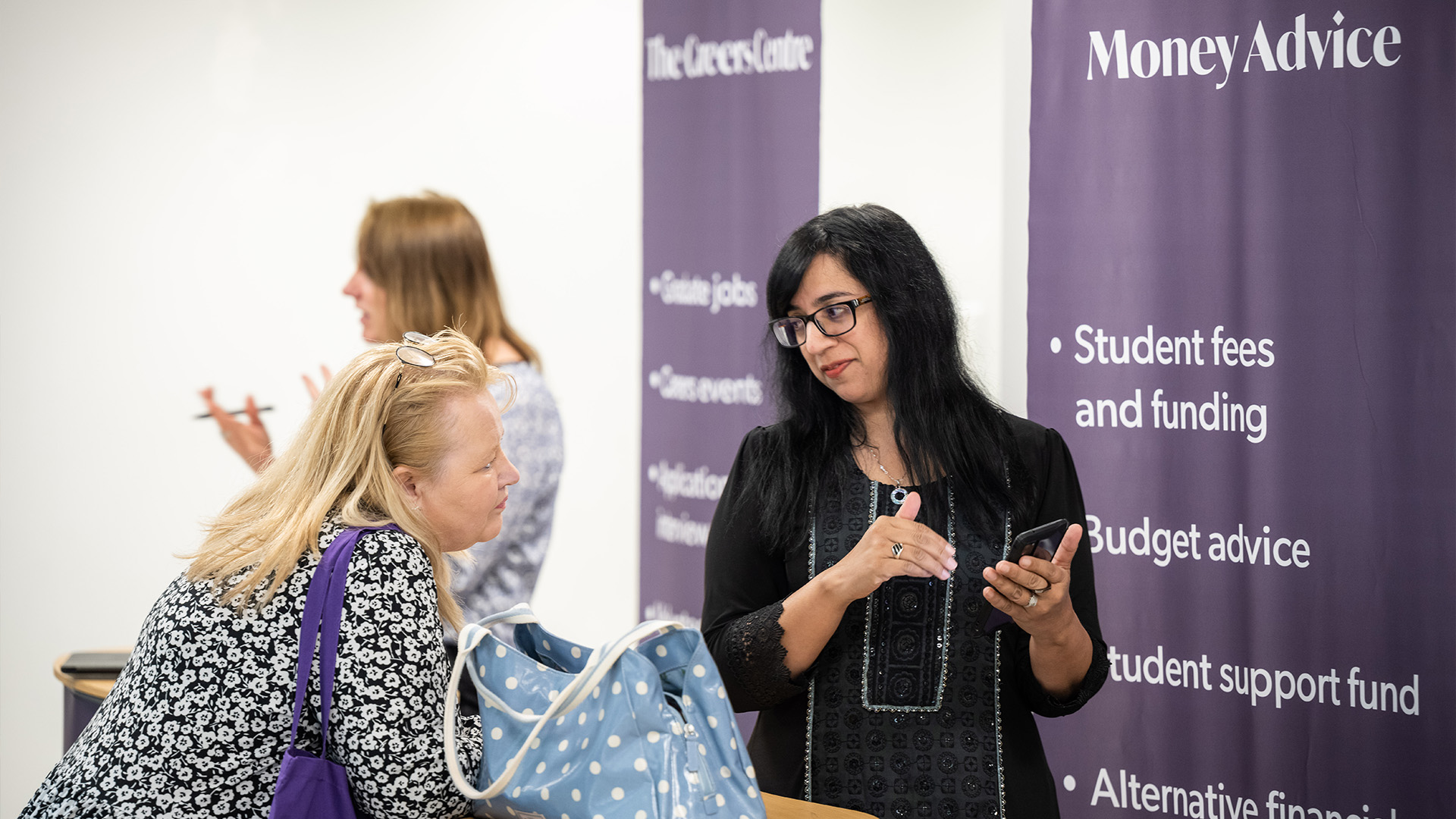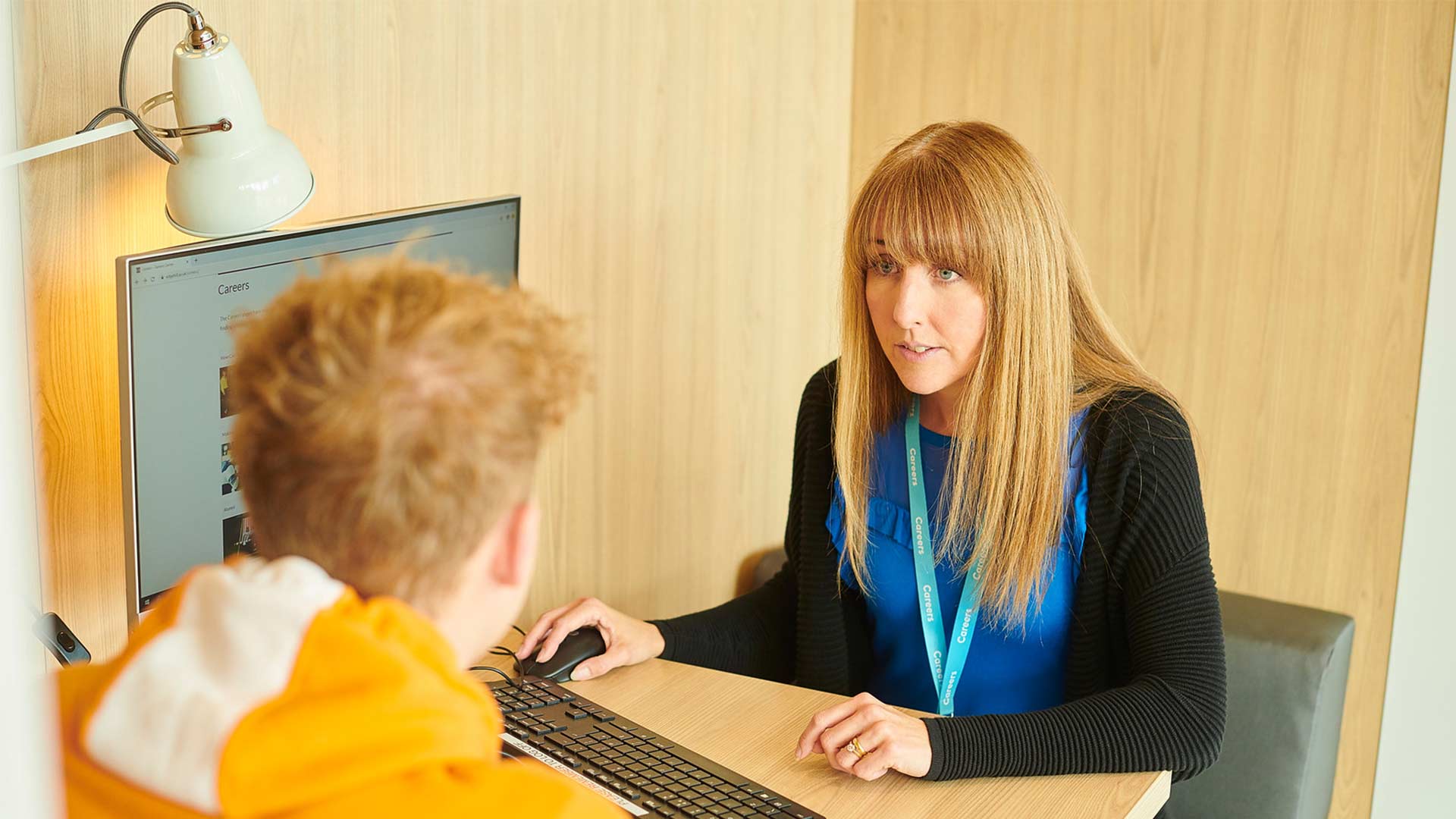Banking and budgeting
Setting up an account
For Year 1 students, it is a good idea to open a student bank account at the very start of the first term so that your student loan can be paid into this at the beginning of each term. A fully confirmed maintenance loan usually takes 3 – 5 working days to arrive into a bank account after stage 2 enrolment and attendance. For Year 1 courses, this payment is an automatic process after enrolment and attendance.
View details of the course enrolment processShopping around
With most major high street banks offering student bank accounts, it is a good idea to shop around for incentives. Many banks offer authorised interest-free overdrafts and free gifts. The UCAS website has some useful advice on how to choose a bank account. When choosing a bank account, it is important to consider what will happen to your interest-free overdraft after graduation.
Proving your student status
Banks will need to verify your identity and student status through documents such as your passport, driving licence, and enrolment evidence. Each bank will have its own procedures so it’s worth checking what you’ll need before you apply. You can request a course confirmation letter from enrolment, if you need one.
Banks will carry out a credit check before they open your account. You can find out how to check your credit report on the Money Advice Service website. They also have advice on how you can improve your credit rating.
If, for any reason, you are unable to get a student bank account or a normal current account, you could consider a basic bank account. These accounts are similar to normal bank accounts but do not require a credit check and may have more basic features.
Excessive bank charges are no longer a future issue, as many banks are no longer charging fees for going over an overdraft limit.
However, if you have received several past charges from your bank for being regularly overdrawn, it may be worth contacting them to request support.
Many successful refunds relate to situations where:
- charges are creating financial hardship, resulting in being unable to pay for necessities.
- bank charges are added to past bank charges, putting customers further into the red and potentially causing further charges.
- charges are disproportionate to the amount of debt.
Here are three guides that could help you with the options and limit on reclaiming bank charges.
Successful ‘unfair’ bank charge claims can, in some situations, result in the bank account being closed. It is important to check the terms and conditions attached to an offer of bank charge refunds.
Budget Planner
If you wish to plan your money by the term, try our very own budgeting sheets designed by Edge Hill students. Feel free to download and change it as you wish.
Budgeting apps
You can download these handy apps on your phone to keep track of your spending on the go.
Helpful budgeting websites
- Money Helper – their online tool is a quick way to save cash and it only take a minute.
- The Money Manual – Find handy tips in The Money Charity’s guide to managing your money.
- Use the online student finance calculator to estimate your student loan.
- The Money Saving expert website has a list of sixty ways that you can make the most of your money, and it’s aimed specifically at students.
The Money Advice team offer virtual and telephone appointments, which can be booked 72 hours in advance. Appointments are for 30 minutes. If needed, a follow-up appointment will be arranged.
The team can offer guidance on all money-related matters including student funding, they can help with personal finances and provide advice on the Student Support Fund.

Since 6 April 2020 banks have no longer been able to charge fixed daily or monthly fees for an overdraft and must now charge a single interest rate for all overdrafts whether they are arranged or unarranged.
An arranged overdraft is set up by agreement in advance, whereas an unarranged one is when an account balance dips below zero by accident due to a direct debit or payment coming out. Overdrafts are usually (apart from student overdrafts with a 0% rate of interest) designed for very short-term use and should be avoided.
This rule from the Financial Conduct Authority (FCA) also means banks cannot charge customers more for unarranged overdrafts than for arranged overdrafts.
If you have an arranged or unarranged overdraft and are worried about the interest rates, it would be a good idea to talk to the bank and ask for help – here is a guide from Money Saving Expert on how to do this.
One of the best ways to solve any worries and reduce the stress with money is to take a few minutes to set up a termly spending target. All you will need is a basic list of income and outgoings over the term.
Any spending targets can be used as a guide to pin point and solve any issues even if you are short of cash. Some weeks you may spend over the target but in other weeks you may spend less. The key is to keep an eye on the target and see if you need to adapt your income, reduce your spending or seek help.
Being a student means you can take advantage of generous student discounts both online and in store. Many of these offers are also available to students studying on an apprenticeship programme. The links below take you to some of the most popular discounts and deals and it’s always good to ask if student discounts are available, whether you’re eating out, shopping, or getting a haircut.
If you’re unsure about taking the first steps into the kitchen, here are some websites that will make cooking a breeze.
- Student Eats has a great YouTube channel with loads of quick, easy and tasty recipes.
- Student Cooking TV has loads of recipes with step-by-step visual guides. Recipes are also categorised to make finding tonight’s perfect meal simple.
- Feel like a takeaway but can’t afford it? Making your own version can be healthier for both you and your wallet. Have a look at BBC Good Food’s Takeaway Favourites for inspiration.
- Want to know what’s cooking in other students’ kitchens? Take a look at Student Recipes to see what’s been rated highly or to share your own ideas.
Reducing food costs
- It’s a good idea to budget how much you can spend on food each week so you’re not living on tins of beans and used teabags by the end of the month.
- Include treats in your budget, such as nights out and meals with friends. You don’t want to miss out on something fun because you’ve got no money left.
- Save money on your snacks by buying multi-packs in advance rather than grabbing something on the go.
- Bulk cooking is a great way to save money. Making big batches of your favourite meals and then freezing them into individual portions will save you both money and time when you come home hungry.
- Why not do your shopping at the end of the day when lots of items are drastically reduced?
- Don’t go shopping on an empty stomach.
- Money Saving Expert has put together 33 tips and tricks to slash the cost of your shopping trip, including when to find reduced items and writing a meal plan.

